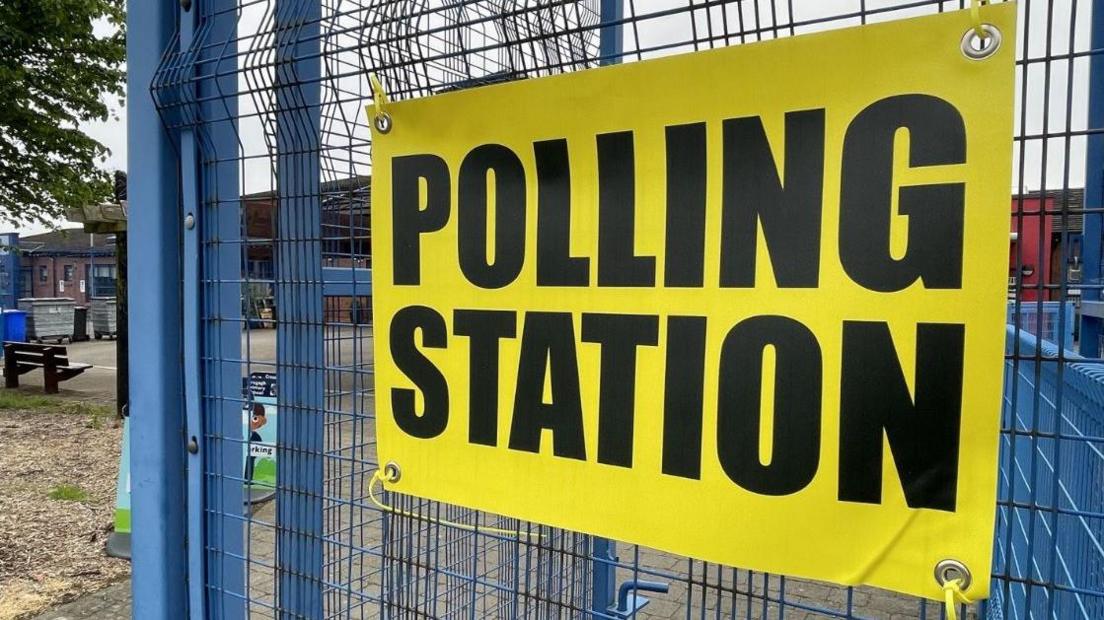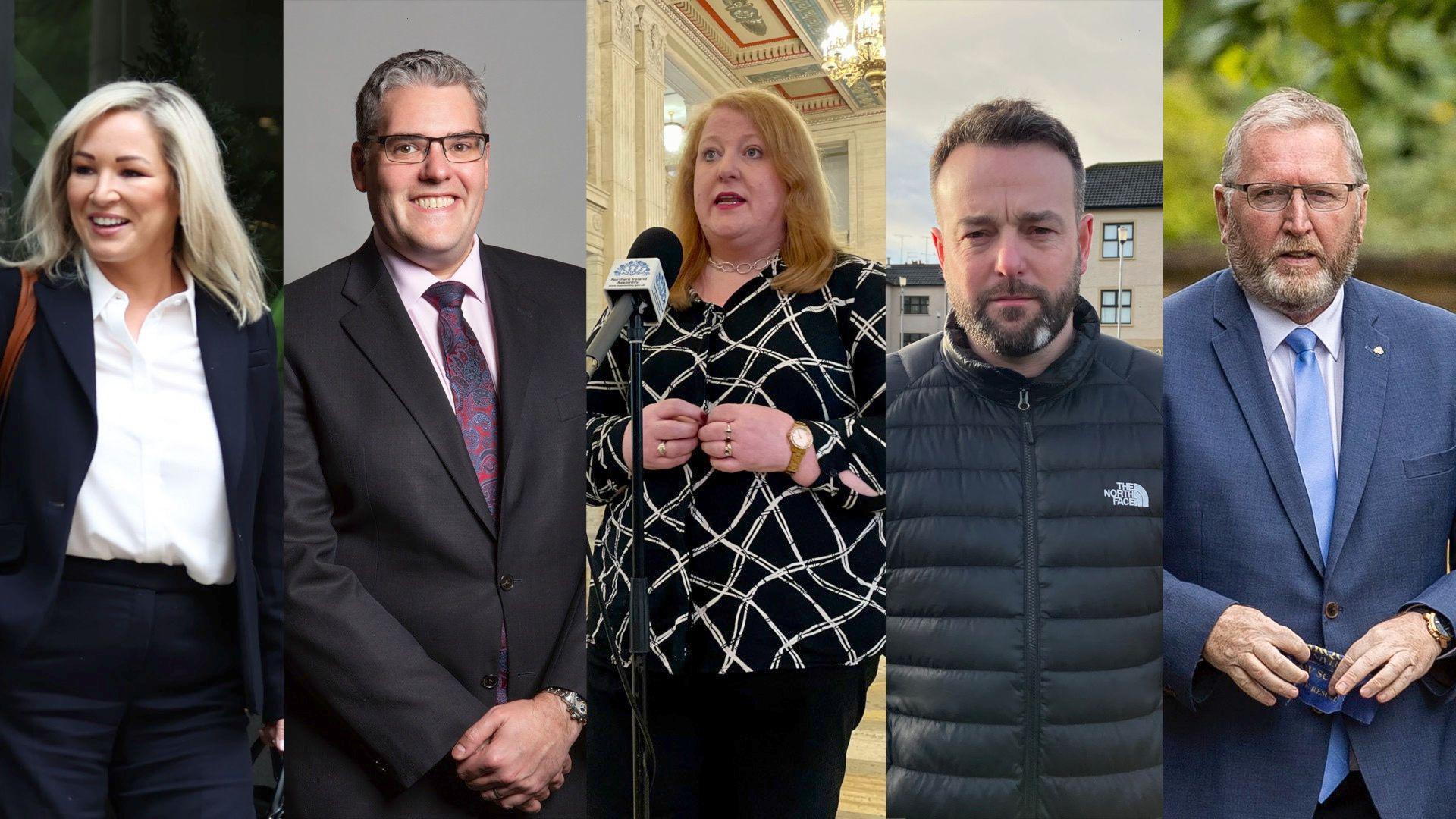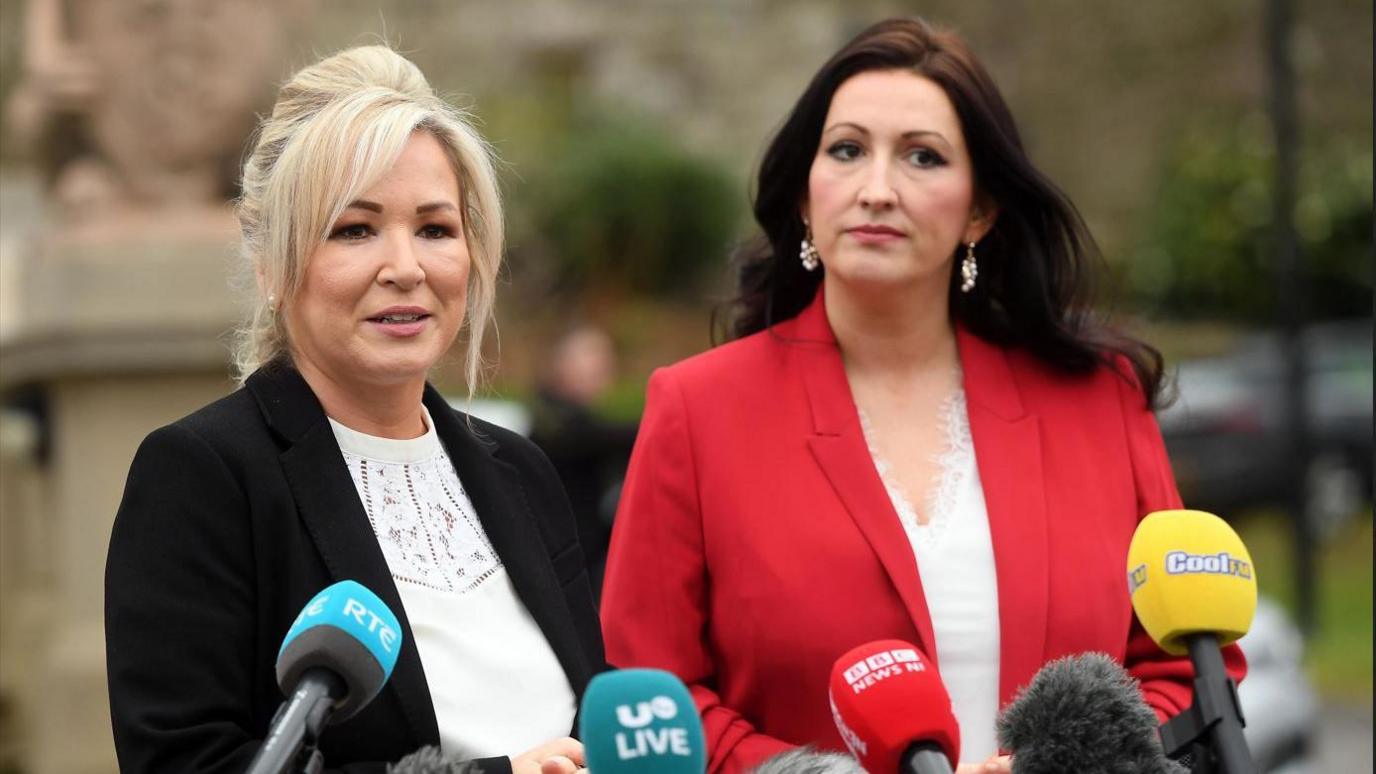Northern Ireland's key general election battlegrounds

Some constituencies will be more competitive than others
- Published
A summer UK general election may have been a surprise, but Northern Ireland's political parties have long been preparing for this campaign.
All 18 seats are up for grabs when polling day arrives on 4 July.
In the 2019 Westminster election, the Democratic Unionist Party (DUP) won the most seats in Northern Ireland with eight, but now has seven after former party leader Sir Jeffrey Donaldson was suspended from the party.
Sinn Féin came second with seven, while the Social Democratic and Labour Party (SDLP) secured two and the Alliance Party one.
Some constituencies will be more competitive than others.
The election being held during Northern Ireland's school summer holidays and parading season could affect turnout.
Constituency boundary changes may also have an impact.
BBC News NI has been looking at some of Northern Ireland's key battlegrounds for the 2024 election.
Lagan Valley

Sir Jeffrey Donaldson had been MP for Lagan Valley since 1997
The constituency will be a major focus following Sir Jeffrey Donaldson's shock departure in March.
He has been MP for 27 years, but is not standing again after facing historical sex charges which he has said he is strenuously contesting.
The Democratic Unionist Party has announced that their general election candidate for Lagan Valley is the Upper Bann MLA, Jonathan Buckley.
Alliance Party assembly member Sorcha Eastwood and UUP MLA Robbie Butler are also challenging for the seat.
Belfast East
The incumbent Gavin Robinson is perhaps the politician most under pressure in this campaign.
Just weeks since becoming DUP interim leader following the Sir Jeffrey turmoil, he faces defending his seat in Belfast East.
Alliance Party leader Naomi Long was within 2,000 votes of unseating him in the last general election in 2019.
But since Stormont’s return she has been undecided on whether to stand, as an election win would mean giving up her assembly seat and role as justice minister.
There were only three candidates in the race last time. If there is a broader field in this poll, the result could be more unpredictable.
North Down
The Alliance Party's deputy leader, Stephen Farry, was the surprise winner in 2019.
Many thought the seat was the DUP’s to lose after independent unionist Sylvia Hermon stepped down.
The DUP's candidate last time, assembly member Alex Easton, has since quit the party and is now running as an independent.
There has been speculation the DUP and another unionist party, TUV, could step aside to give Mr Easton a clear run against Alliance.
But the Ulster Unionist Party (UUP) is contesting the seat with their candidate Tim Collins, a retired British Army colonel known for his role in the Iraq War in 2003.
Sinn Féin, the SDLP and Green Party all stepped aside last time, but could all re-enter the fray.
South Antrim
Paul Girvan has held South Antrim for the DUP since 2017 after unseating the UUP's Danny Kinahan.
But the UUP has made winning the seat back its key target of this election.
Robin Swann, an assembly member for neighbouring North Antrim, has switched constituencies to run for Westminster.
And he is stepping down as Stormont health minister to focus on the campaign - putting pressure on other parties to follow suit.
However, the bold strategy has caused some internal party divisions.
A senior UUP councillor quit over former party leader Mike Nesbitt being lined up for the ministerial role.
Foyle
SDLP leader Colum Eastwood won the seat in 2019 by a landslide of more than 17,000 votes.
The result ousted Sinn Féin's Elisha McCallion, who narrowly won in 2017 at the expense of the SDLP's Mark Durkan.
But since becoming the largest party in recent Stormont and council elections, Sinn Féin may have hopes of challenging for the seat once more.
It outpolled the SDLP in Foyle in the assembly election in 2022, although constituency boundaries have since changed slightly.
Belfast South and Mid Down
The constituency previously known as Belfast South has been renamed and made larger as a result of recent boundary changes.
It has been extended to include areas which were previously part of Lagan Valley and Strangford.
The SDLP's Claire Hanna won Belfast South in 2019 with a 57% majority.
Her campaign, which unseated DUP's Emma Little-Pengelly, was boosted by the Green Party endorsing her and Sinn Féin stepping aside.
But with Brexit no longer the main election issue, those parties are expected to be returning to the ballot paper this time.
With Alliance running and the dynamics of a first-past-the-post election, the contest could be more open than the stats suggest.

Related topics
- Published23 May 2024

- Published23 May 2024
